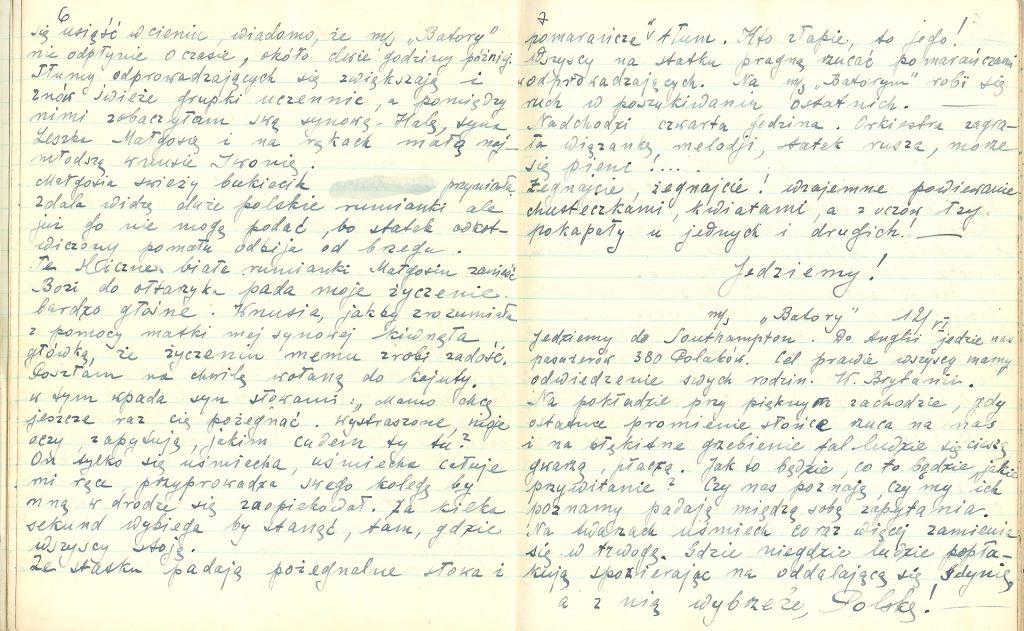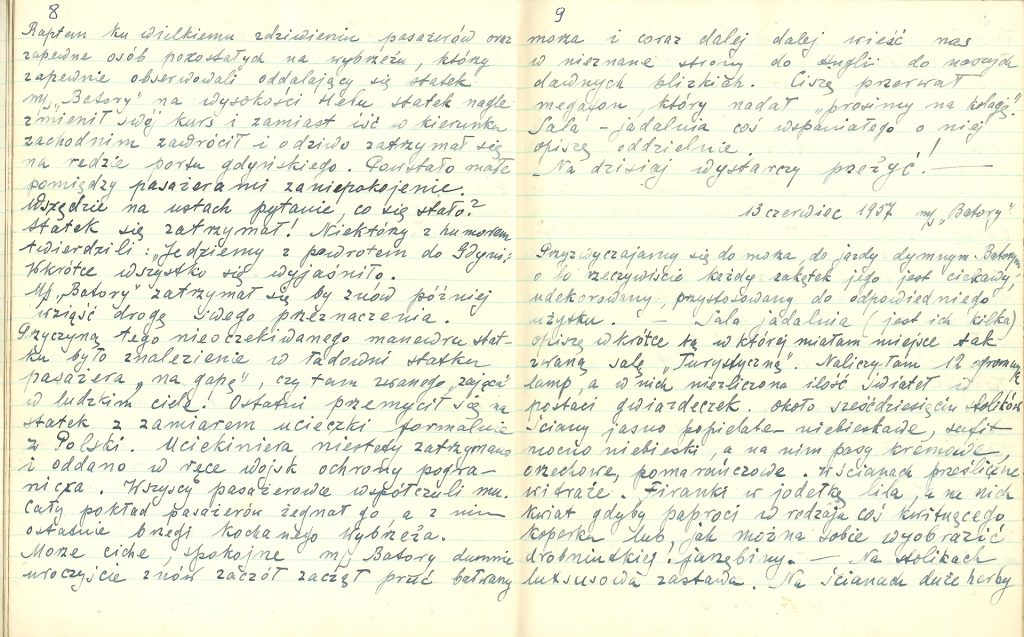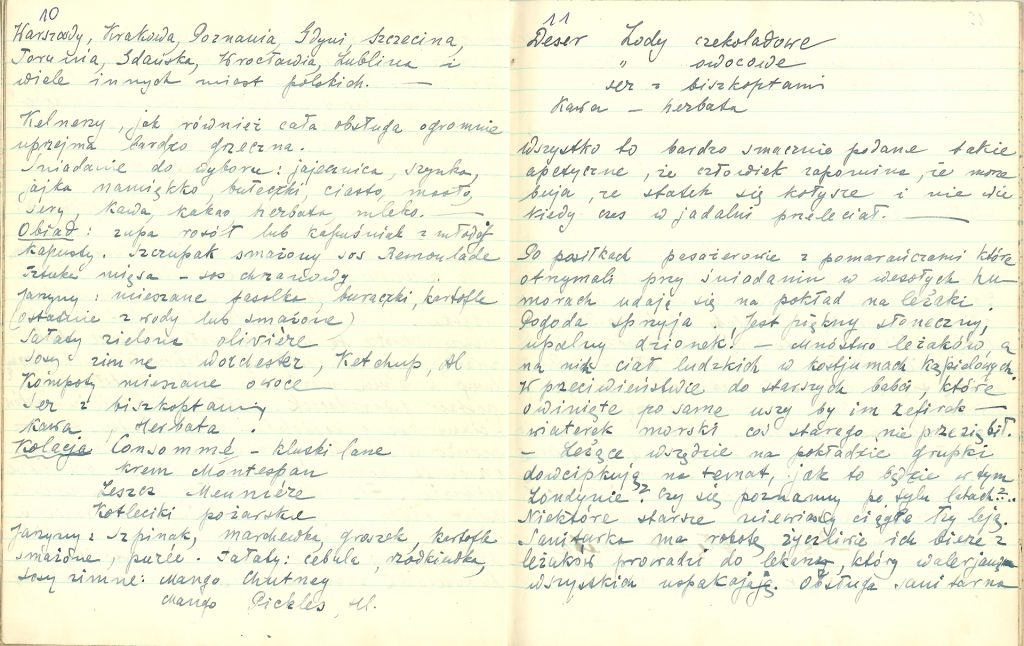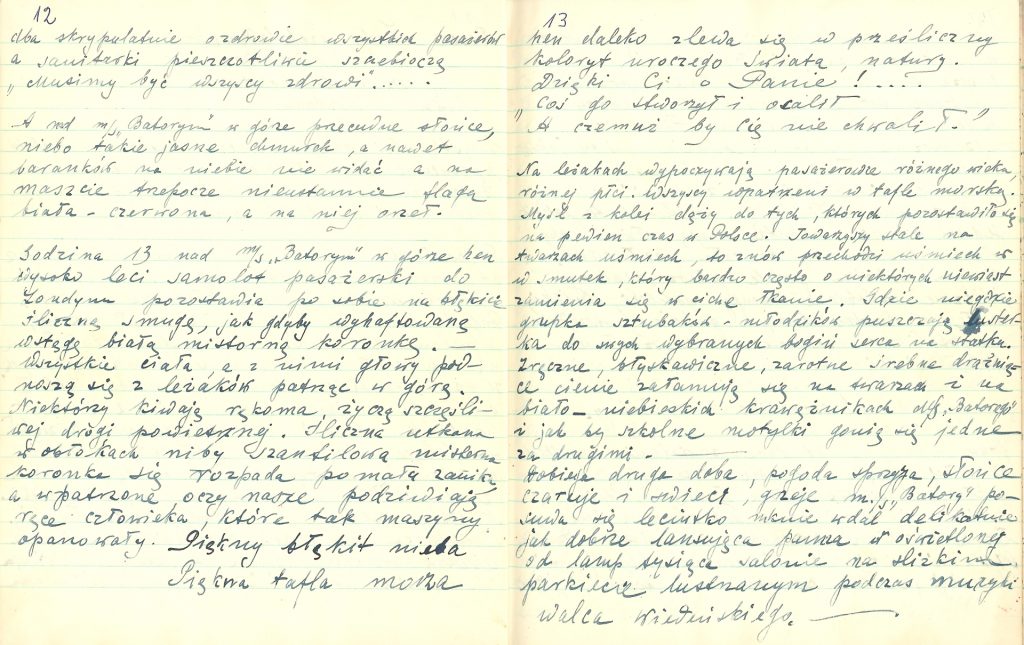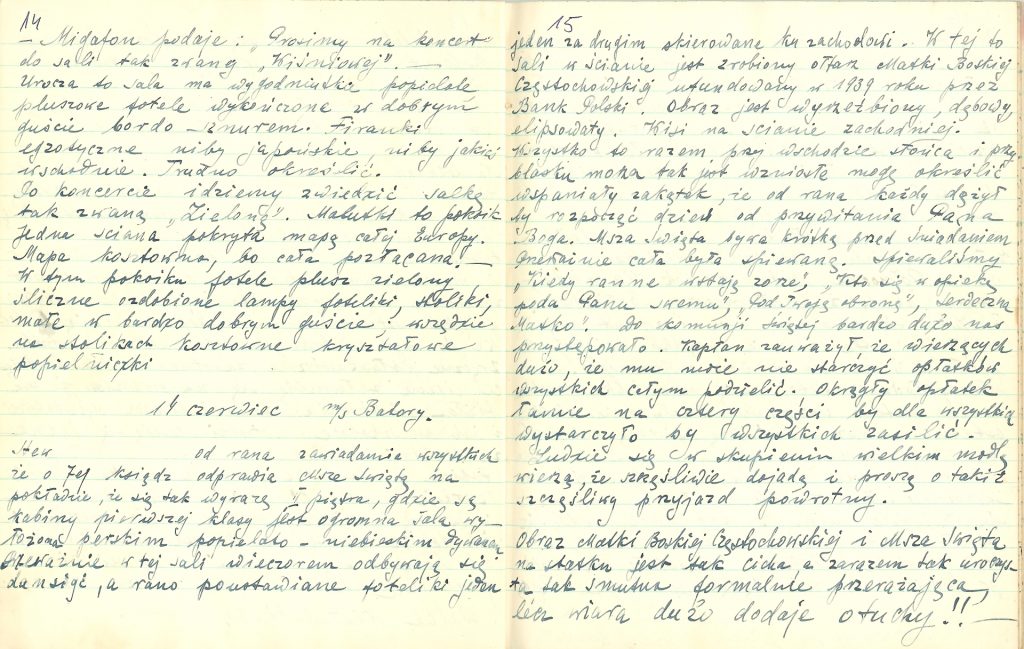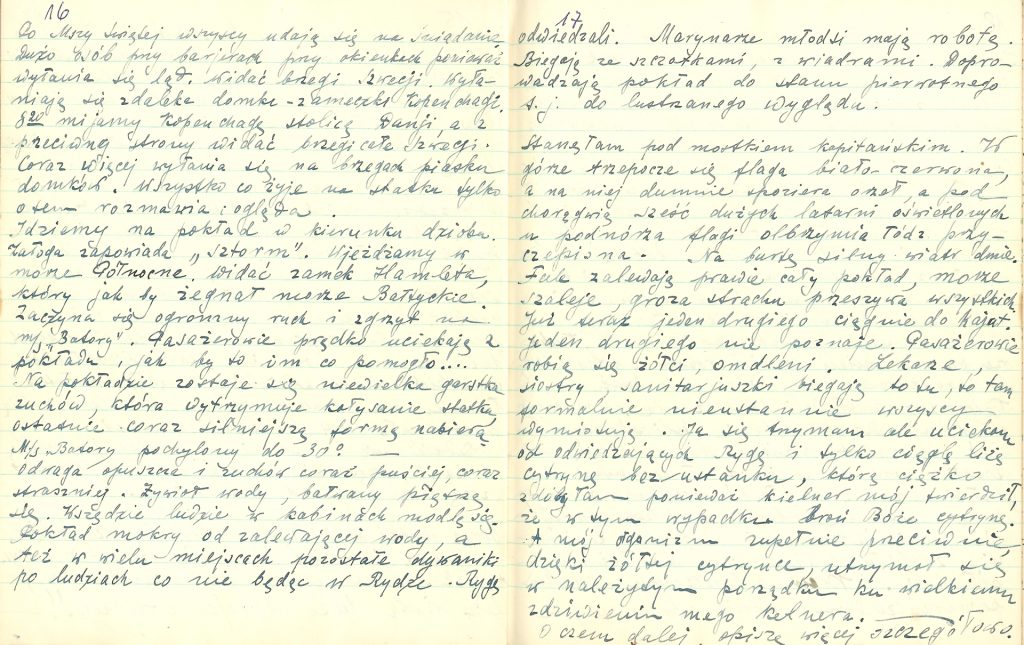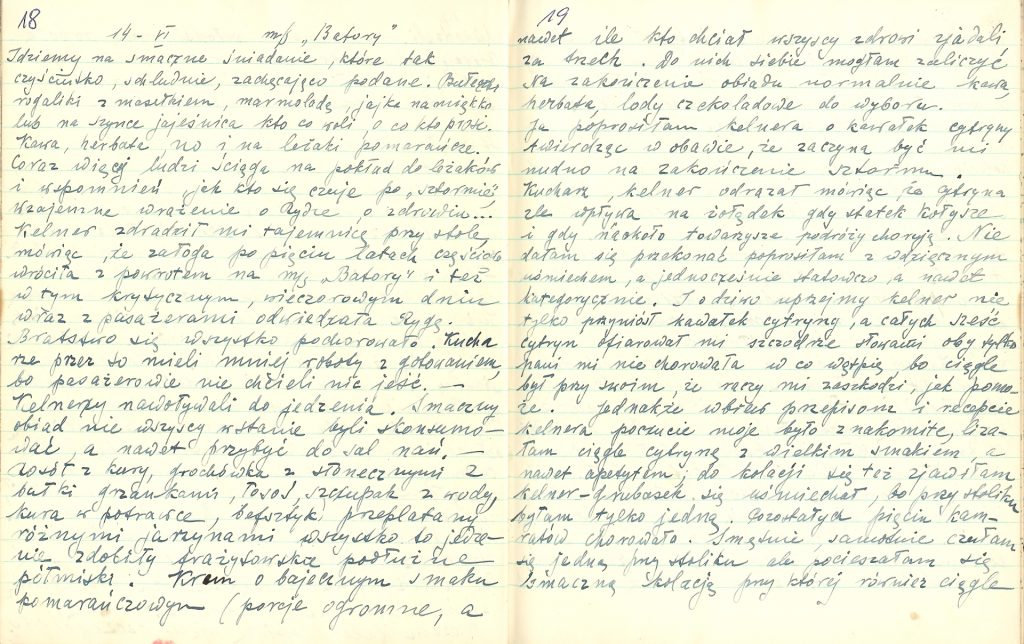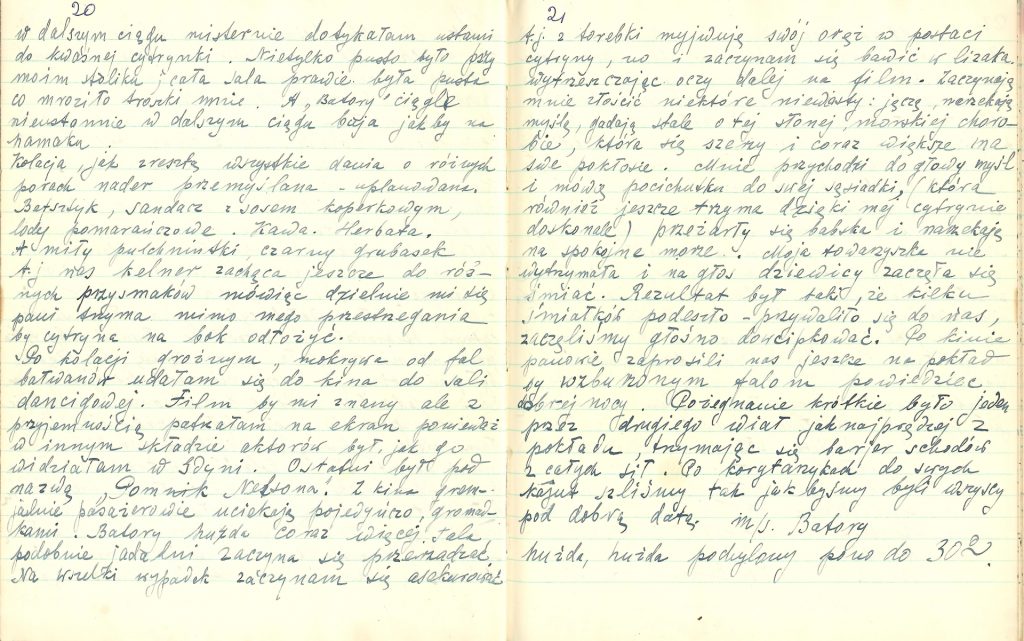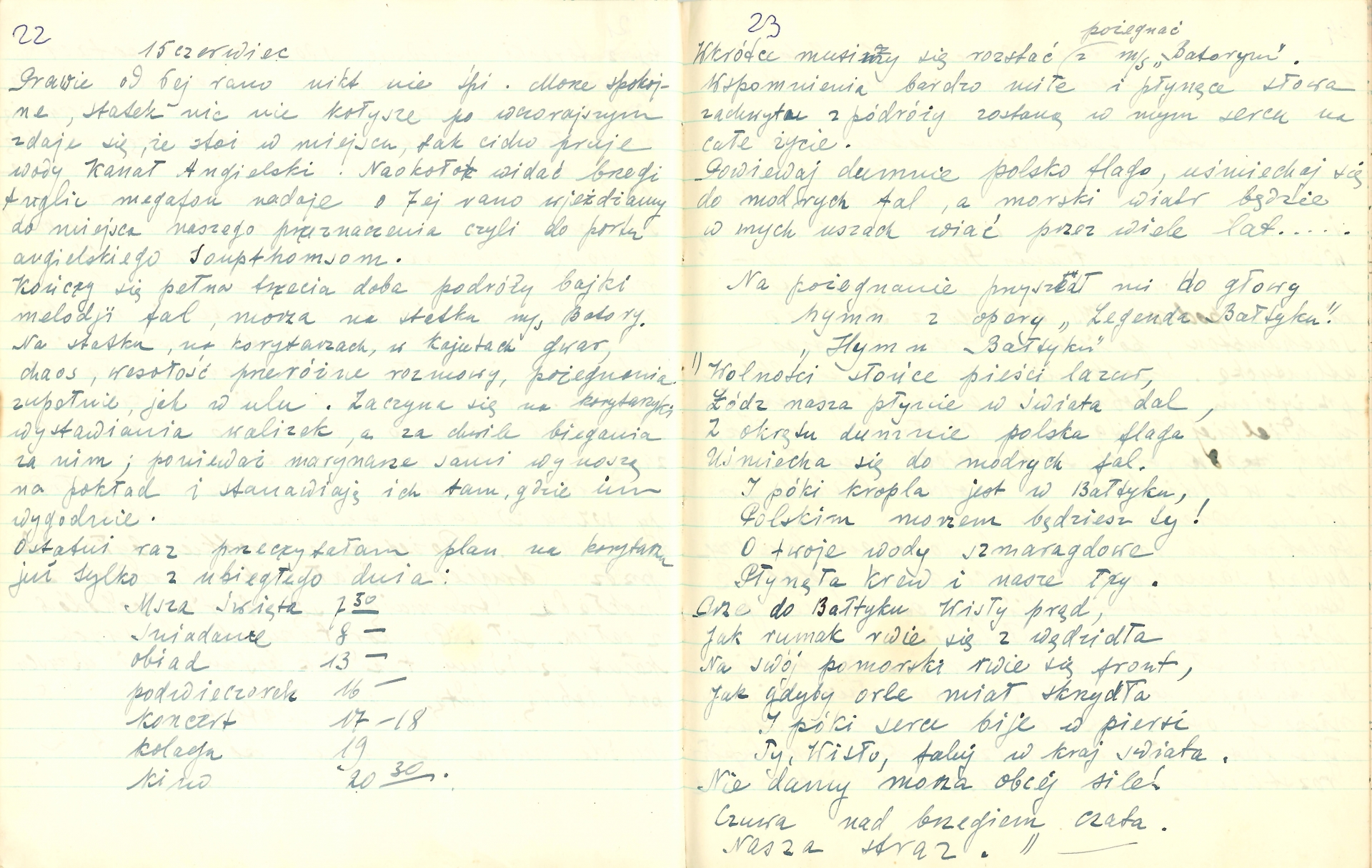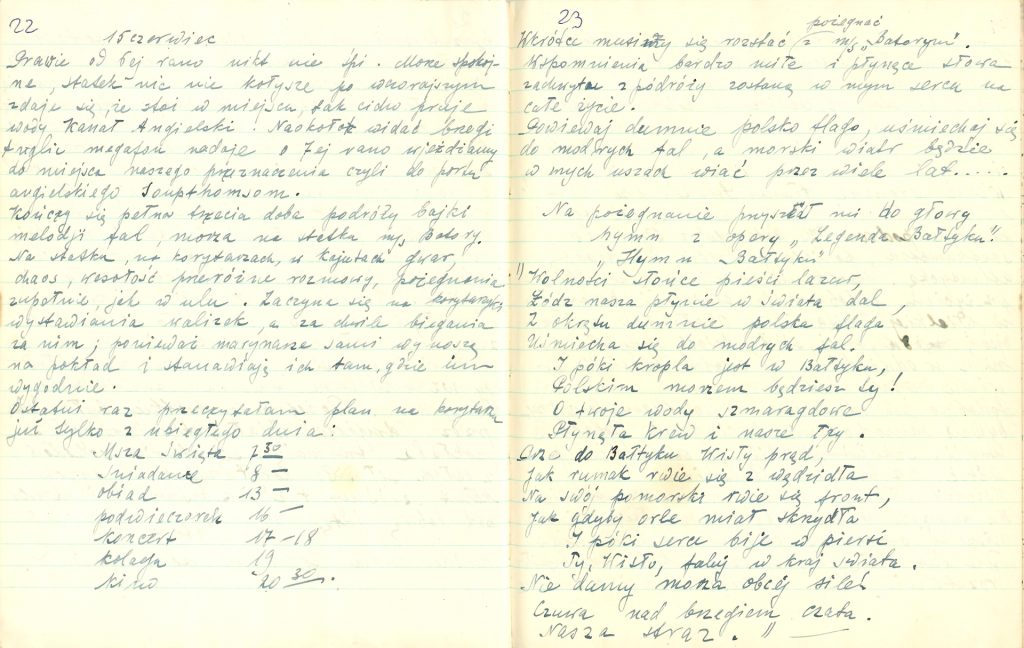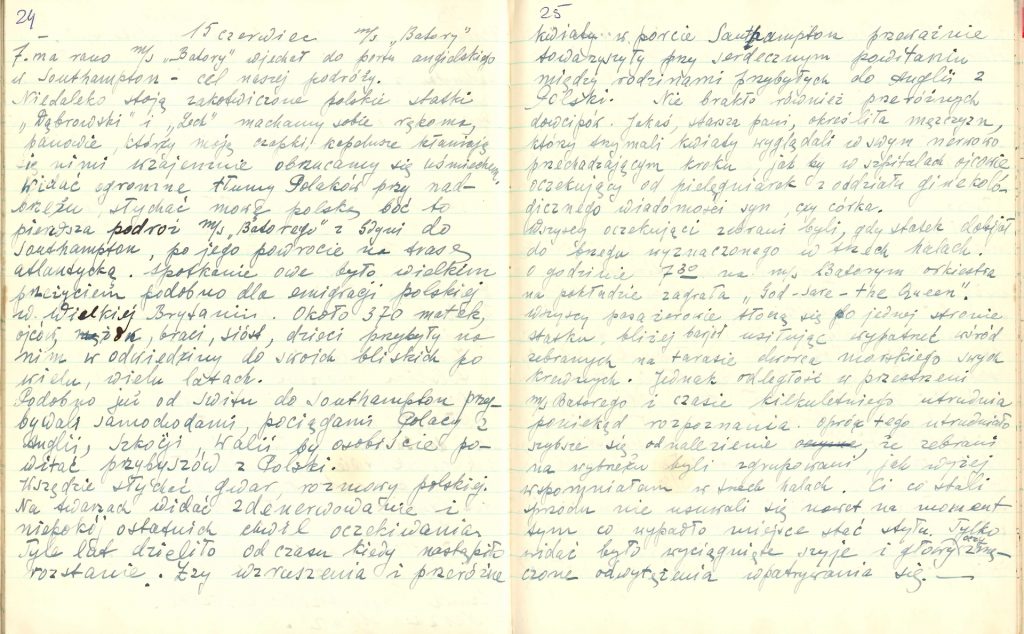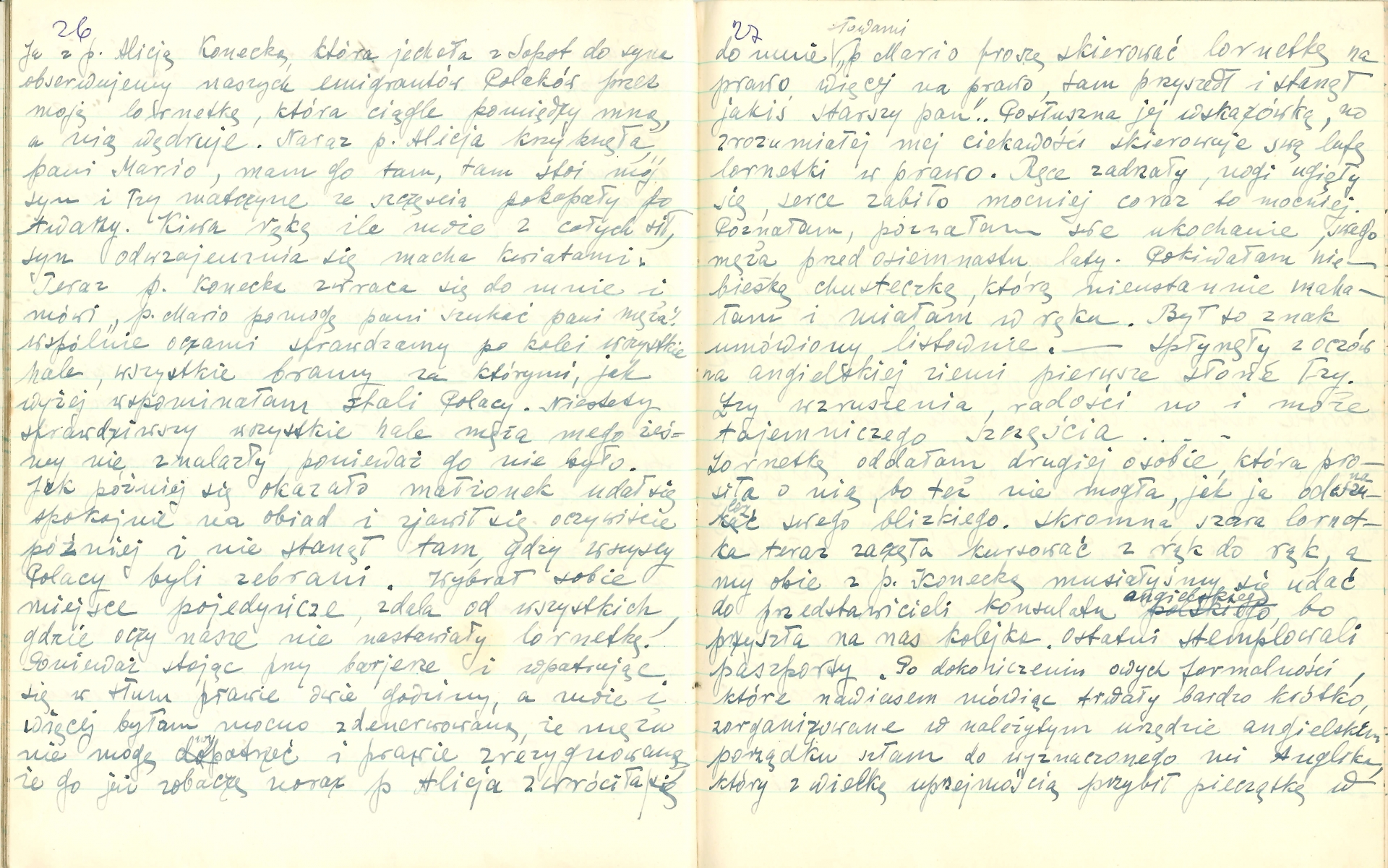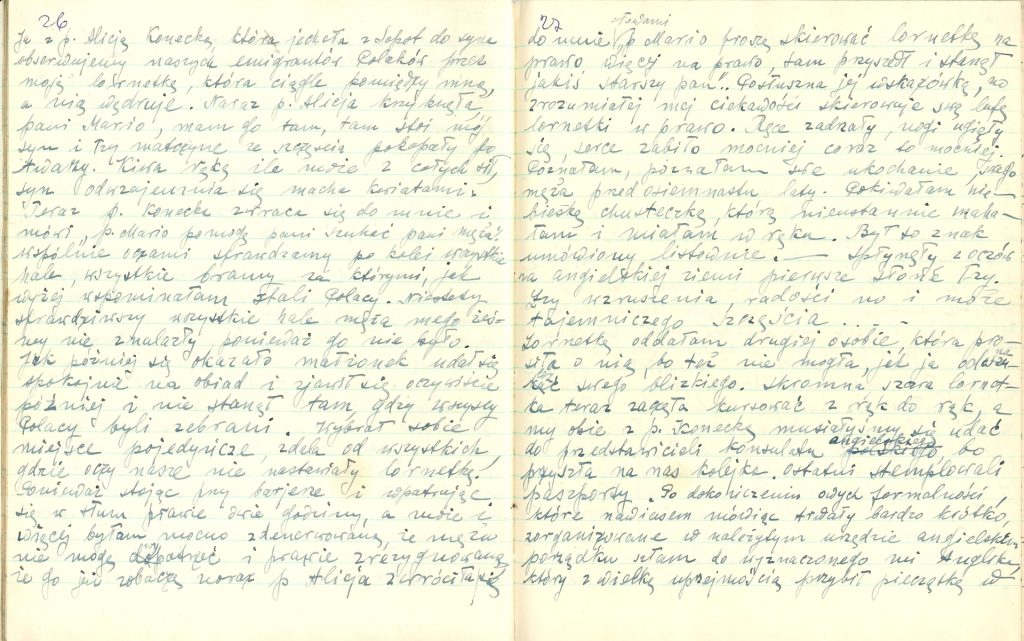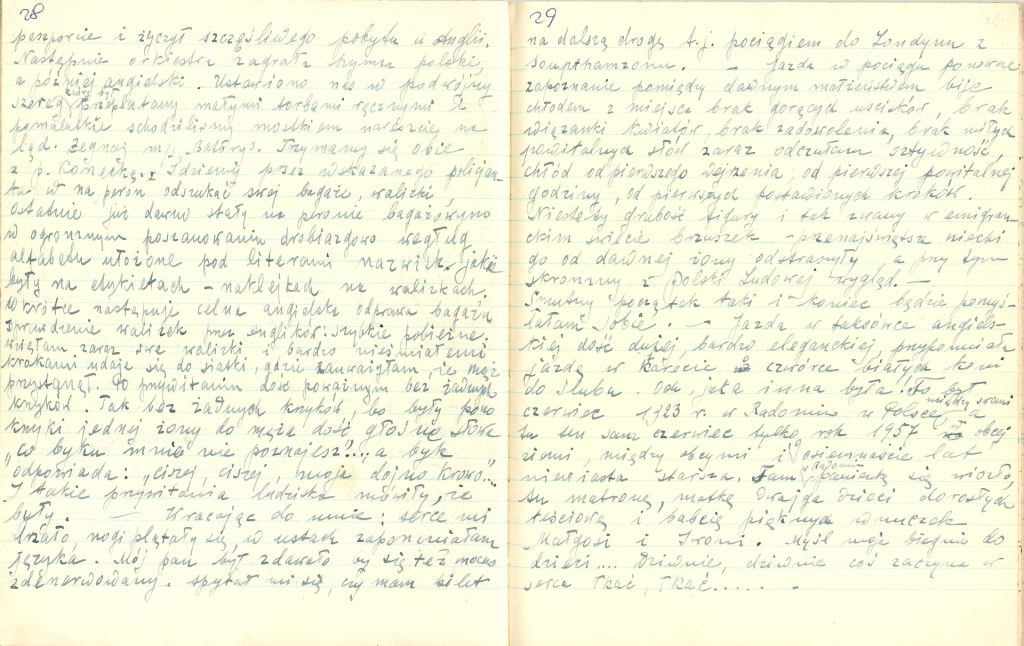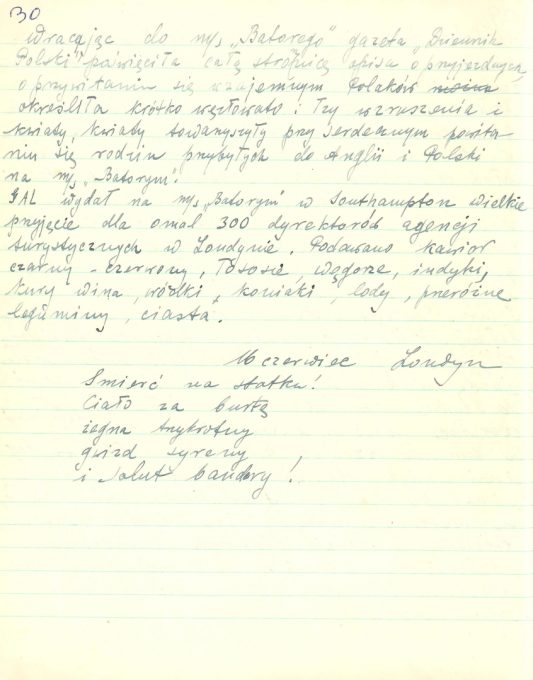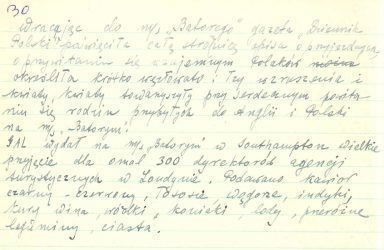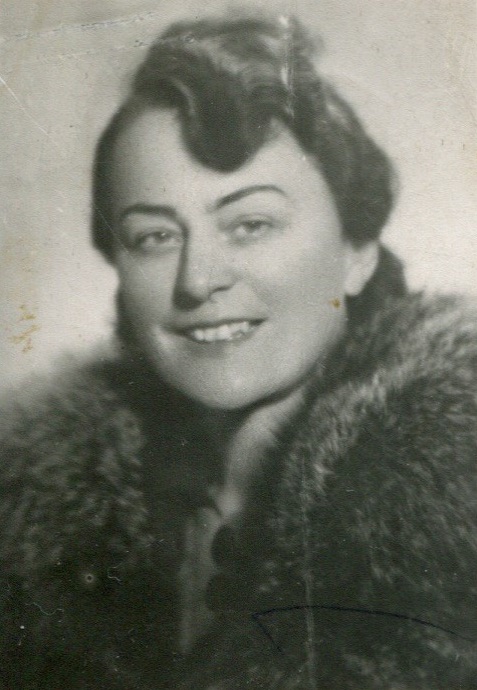
Fragments of Maria Complak’s diary provided by Małgorzata Marcinek, her granddaughter.
The author of the diary is Maria Zofia Complak, nee Kowalewska – my grandmother Marysia. She was born as the daughter of Malwina and Piotr Skulski, March 25, 1901 in Blizin. She had three siblings – an elder sister Halina (who lived after 1945 in Gdynia) and younger brothers, Zygmund and Sławek. Sławek, who was a sailor, after World War II, settled on a British farm and died there in 1964. He is buried in Wales.
Maria got education in the lodgings in the Caucasus under the care of her aunt Czesia, who lived there with her husband, a Russian officer. Maria attended seven-grade Girls’ High School in Kislovodsk in the years 1915-1918. She finished it in May 1918 with a secondary school leaving certificate with excellent results in all subjects, for which she was awarded the silver medal. She was taught in the Russian language. On the basis of the then law she received the title of a primary school teacher, which gave her the right to teach. At those times it was a very good education. After the outbreak of the October Revolution she had to flee in fear of losing her life. As an eighteen-year old girl she fled from Baku through Turkey and then through the Mediterranean Sea got to France, where, together with the Haller’s army she returned by a circuitous route to Poland. She got to know her husband Karol by letters. At that time it was fashionable that well-mannered young ladies wrote letters to the soldiers fighting on the fronts of World War I to make their stay on the front and the war experiences more enjoyable in this way. Maria and Karol’s catholic wedding under the sabers took place on 2 or 3 June 1923 in Radom.
Grandfather Karol, as a young volunteer after the outbreak of World War I in 1915, joined the Polish Legions and thus bound his life to the military service. Maria along with her husband moved and lived in different military units (Radom, Przemyśl, Jarosław, Warsaw). They had two children: an elder daughter Malwina and younger son Leszek, my father.
In 1935 my grandfather Karol was moved to Warsaw, where he worked in the General Staff. In September 1939, according to the command, together with the Polish Army he left Poland and never again returned. As a soldier he fought during World War II on the Allied fronts under the command of General Maczek and General Sosabowski (he had many medals and awards, but that’s another story). Grandma Maria, along with her two minor children, was supposed to join her husband in September 1939, but their paths diverged. Maria reached only to Lublin and having learned that the troops had already crossed the Polish border, she returned with her children back to Warsaw, where she spent the gloomy years of the German occupation. She lived for two years on the area of the General Staff of Germans. Later, she was moved to Marszałkowska Street, close to the Saxon Garden. During the war she made a living by trade, running a snuff commission shop. In Warsaw she survived great trauma when her son Leszek, my dad, was arrested on Good Friday and imprisoned in Pawiak. She spent the night in St. Christopher church, praying and begging the heavens for release of her son. In gratitude for the release of Leszek until the end of her life, on the first day of Easter she was always fasting. Shortly before the outbreak of the Warsaw Uprising in 1944 she had moved to nearby Józefowo and this way saved herself and her children, because the house where they lived at 142 Marszałkowska Street, along with all personal belongings and documents, was completely burned and destroyed in the aftermath of a bomb explosion. For this reason, family heirlooms did not survive.
After the war, Maria received from the allocation of the mayor of Warsaw an apartment in Mokotów, in Bałuckiego Street. Since along with her husband in 1936 she had purchased the property in Gdynia in Zalewskiego Street (today Górna Street), and on the basis of statements by witnesses who testified about that fact, she regained the above-mentioned property after the war conflagration. She left Warsaw and moved to her beloved Gdynia.
Because of her fluent knowledge of the Russian language she was a secretary of president, an employee of the Provincial Library, run a commission shop on Świętojańska Street, and was a Russian teacher in primary school number 4 and 9. In June 1957 in the framework of family reunification (after the political thaw and coming to power of Gomułka) she set out from the port of Gdynia to emigrate to her husband in the UK, who had been staying there since the end of World War II.

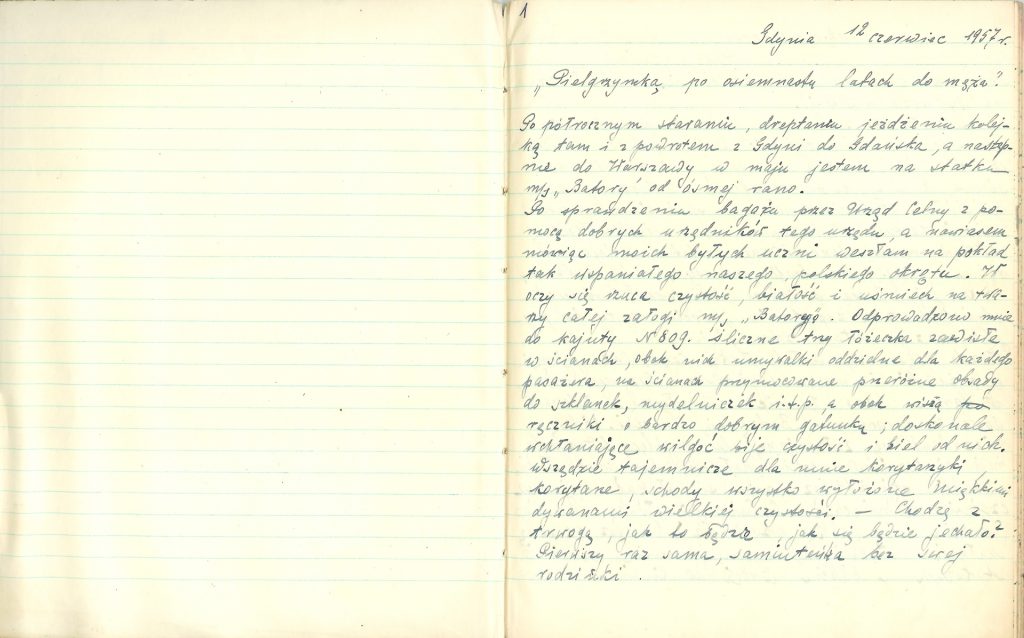
Gdynia, 12 June 1957
A pilgrimage to my husband after eighteen years
After half a year effort, going from pillar to post, taking railway journeys back and forth from Gdynia to Gdańsk, and then in May to Warsaw, I’ve been on the ship M / S "Batory" since eight in the morning.
After having the luggage checked by the Customs Office, with the help of the good officers of this office, and by the way my former students, I went on the board of our wonderful Polish ship. The eye-catcher is the cleanliness, whiteness and smiles on the faces of the entire crew of the M / S "Batory". I was escorted to cabin N 809. Three cute baby cribs hanging on the walls, next to them sinks, separate for each passenger, on the walls there are attached various holders - for glasses, soap, dishes, etc., and next to them hang towels of very good quality, perfectly absorbing moisture. Their cleanliness and whiteness is striking. Everywhere mysterious to me hallways, stairs, everything covered with soft, immaculately pure carpets. I’m going appalled – what it will be like, what the cruise will be like?
For the first time by myself, all by myself, without my family.

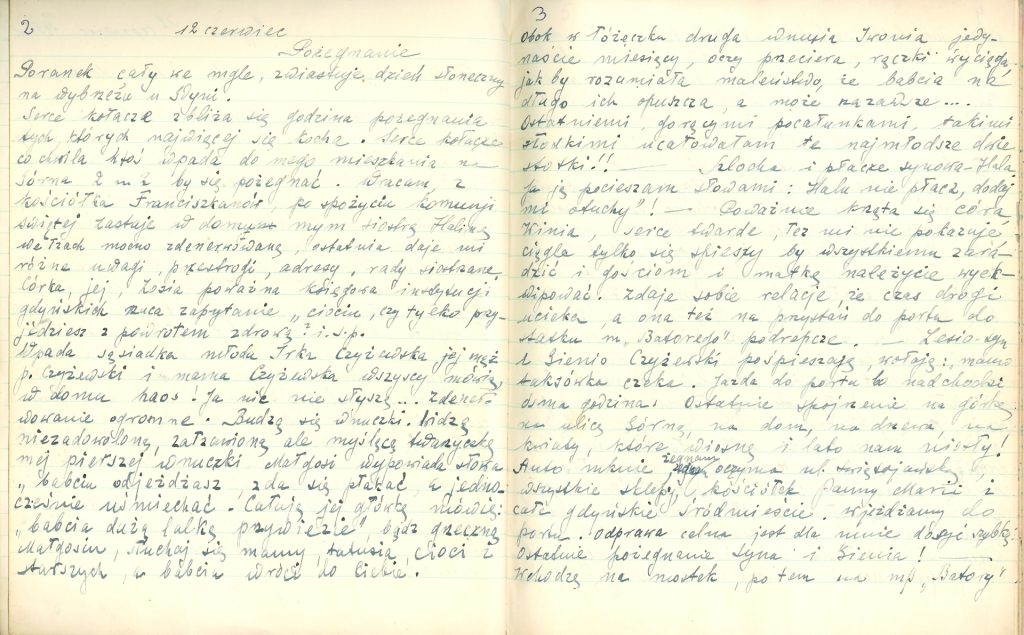
12 June
Farewell
The morning in the fog, heralds a sunny day on the coast in Gdynia.
My heart is fluttering, the hour to say goodbye to those I love the most is coming. My heart is fluttering every time someone drops in to my apartment at Górna Street 2/2 to say goodbye. I'm coming back to the Franciscan church, after receiving the holy communion I find at home my sister Halina in tears strongly upset, she as the last one gives me some tips, cautions, addresses, sisterly advice. Her daughter Zosia, a serious accountant in Gdynia institutions asks a question: "Will you come back safe and sound?" etc.
A neighbor drops in, young Irka Czyżewska, her husband Mr. Czyżewski and mother Czyżewska. Everyone is speaking, chaos at home! I do not hear anything ... Enormous stress. My granddaughters wake up. I can see the unhappy, tearful but thinking small face of my first granddaughter Małgosia, she says: "Grandma, you’re leaving", she seems to cry and smile at the same time. I kiss her head and say: "Grandma will bring you a large doll", be a good girl Małgosia, listen to mom, dad, aunt and grandma will come back to you. Beside, in the crib the second granddaughter Iwona, eleven months, rubs her eyes, gives me her hand, as if she understood that the grandma is leaving for a long time, maybe forever ....
I gave last, warm kisses to two youngest creatures !!
My daughter-in-law Hala is sobbing and crying. I console her saying: Hala, do not cry, give me courage!"
Daughter Winia is serious, her heart is hard. She doesn’t show up, all the time in a hurry to deal with everything, with the guests, and to properly equip the mother. She realizes that the precious time is running out, and she will also go to the port, to the "Batory" ship. Lesio - my son and Gienio Czyżewski are rushing me, crying out: "Mom, the taxi is waiting. Let’s go to the port, in a moment it will be eight o'clock. The last look at the hill, at Górna Street, the house, the trees, the flowers that brought us spring and summer! The car is speeding, I say goodbye to Świętojańska Street, all the shops, the church of the Virgin Mary and the whole Gdynia downtown. We arrive at the port. The customs clearance is quite fast. Last farewell to my son and Gienio. I embark the M / S "Batory",

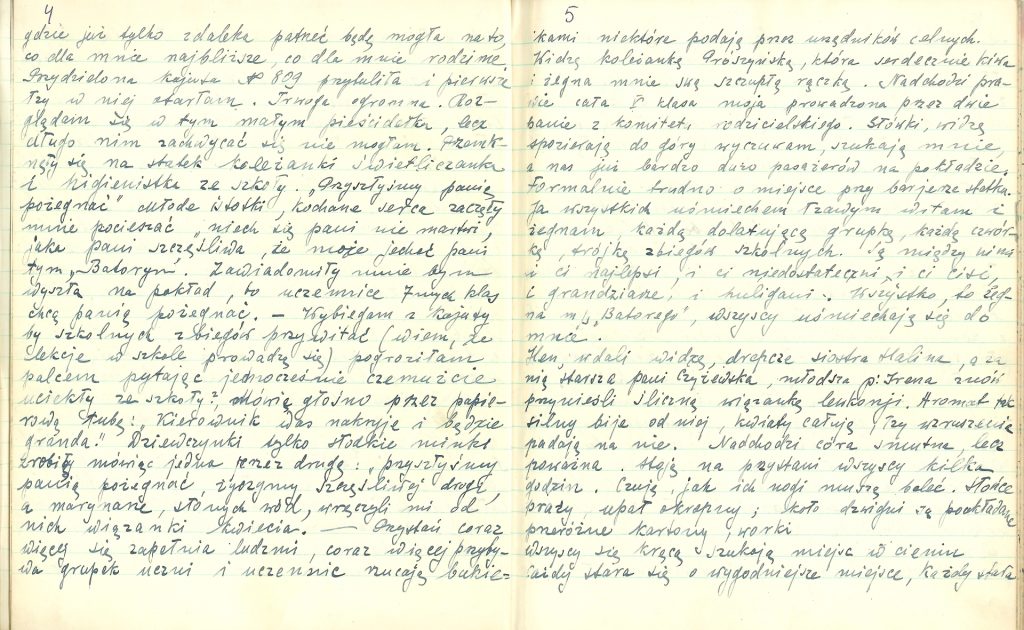
...where I would look at what is the closest and familiar to me only from a distance. An assigned cabin N. 809 hugged and I wiped the first tears. Huge fear. I look around this small miracle, but I couldn’t admire it for long. Friends, a common room teacher and a school hygienist occur on the ship. "We came to say goodbye to you." The young dear creatures began to comfort me: "Don’t you worry," "How lucky you are that you can sail on the »Batory«." They told me to come to the board, because grade seven students want to say goodbye to me. I run out of the cabin to greet the school fugitives (I know that they should be at school). I wagged my finger, asking at the same time: "Why have you escaped from school?" I speak aloud, through the paper tube: "The headmaster will find out and you’ll have a quagmire". The girls just made cute faces, outshouting each other: "We came to say goodbye to you", "Have a safe trip", and the sailors handed me bouquets of flowers from them. The marina fills up more and more with people and the schoolgirls throw bouquets, some give them through customs officials. I see a friend, Ms. Prószyńska, who sincerely waves and says goodbye to me with her slender hand. Here comes almost my entire fifth grade, led by two ladies from the PTA. I can see heads looking up. I feel that they’re looking for me, and there is already a lot of passengers on board. Formally, it is difficult for a place at the ship barrier. I greet and say farewell to everybody with a tearful smile - every coming group, every four, three school fugitives. There are the best ones, and those mediocre ones, and the quiet ones, rowdies and hooligans. All of them say goodbye to the M / S "Batory", everybody smiles at me.
Far away, in the distance, I see my sister Halina, and behind her an old lady Mrs. Czyżewska and younger Irena. Again they brought a lovely bunch of gillyflowers, such a strong aroma strikes from it. I kiss the flowers, tears of emotion fall on them. Here comes the daughter - sad but serious. They all stand on the pier for a few hours. I feel their feet must hurt. The sun is burning, the heat is awful. Next to the lever, behind the deck, various boxes, bags. Everyone is squirming, looking for a place in the shadow.




